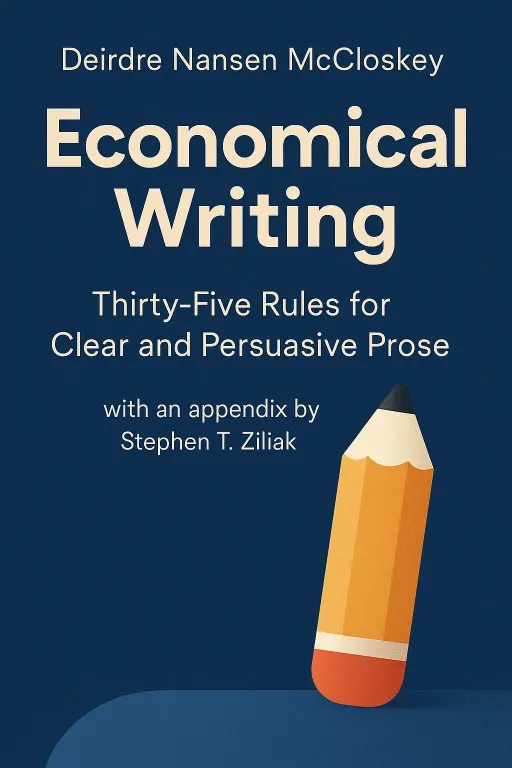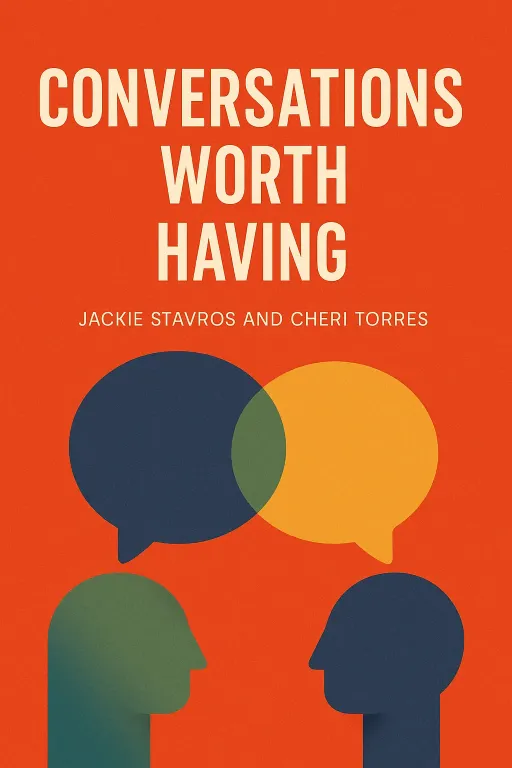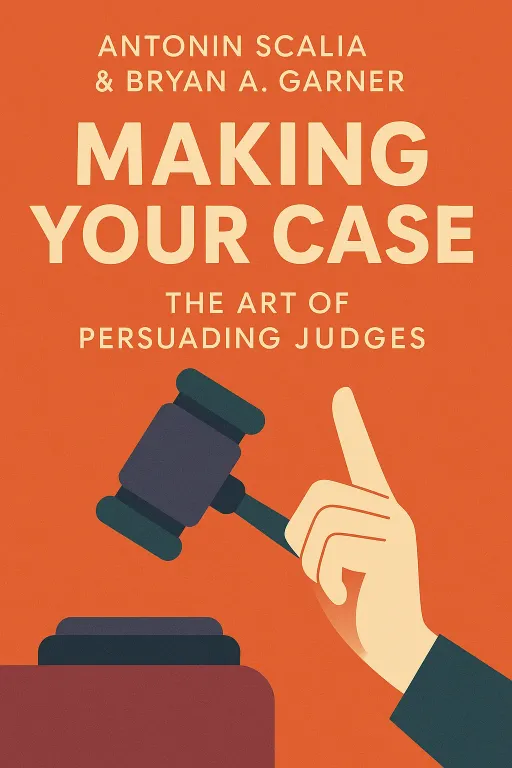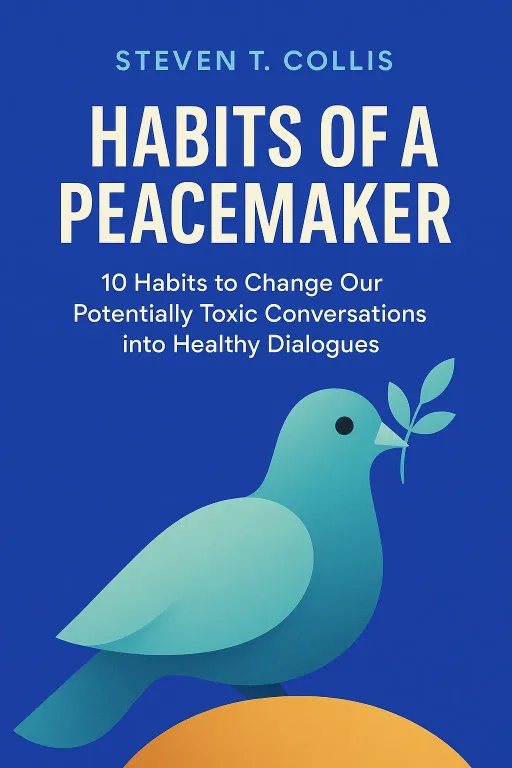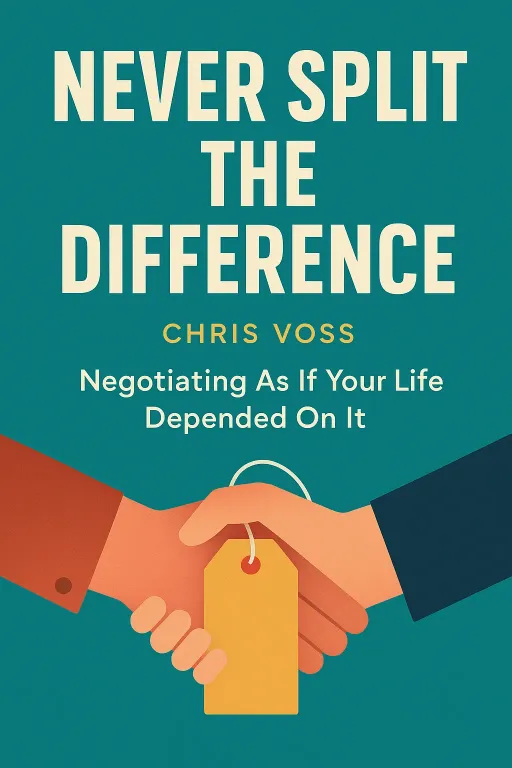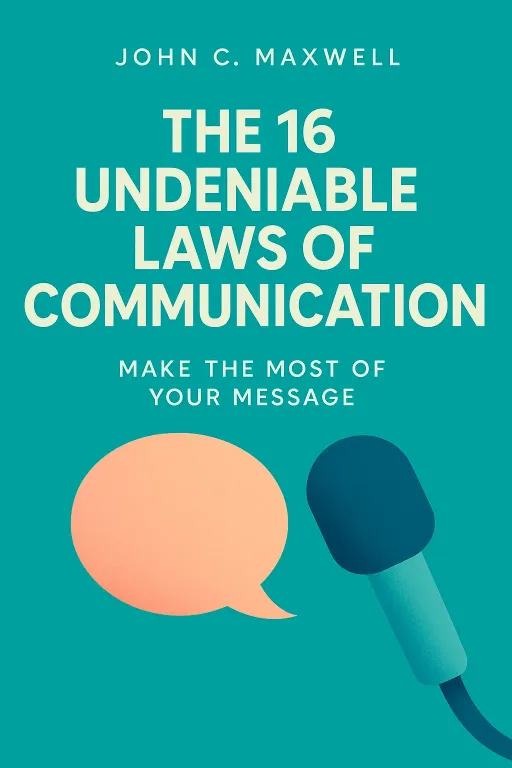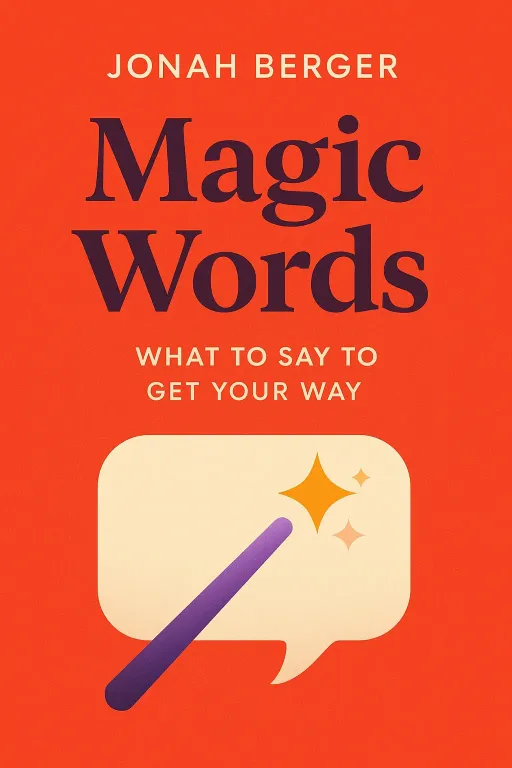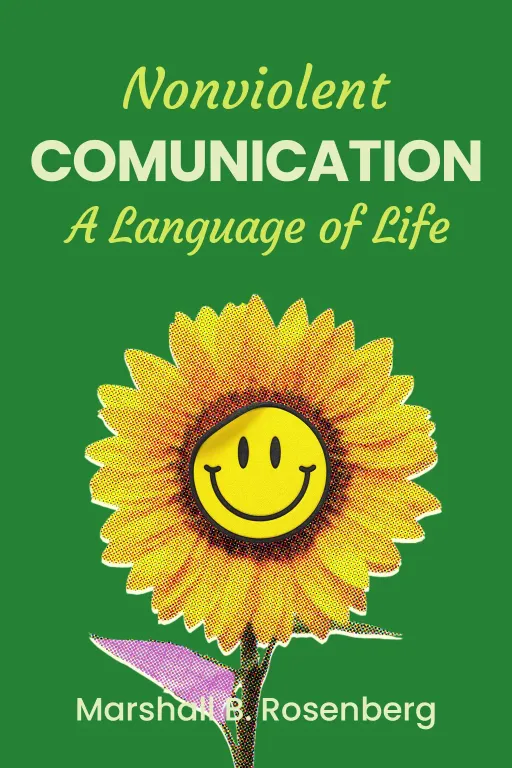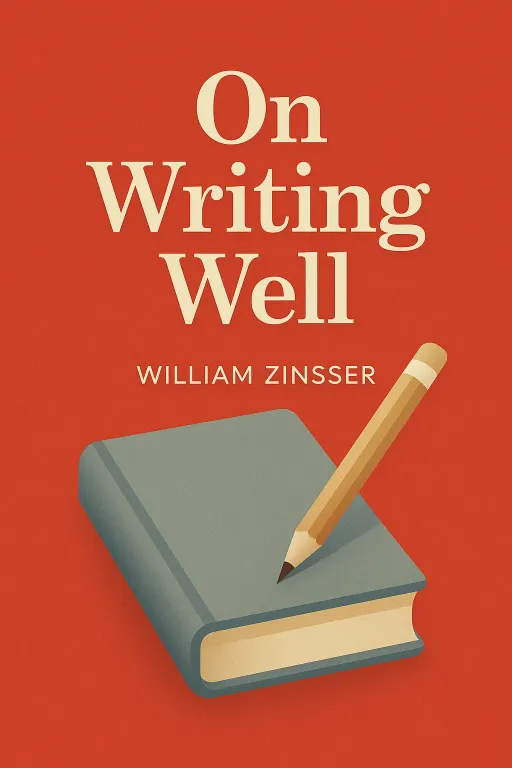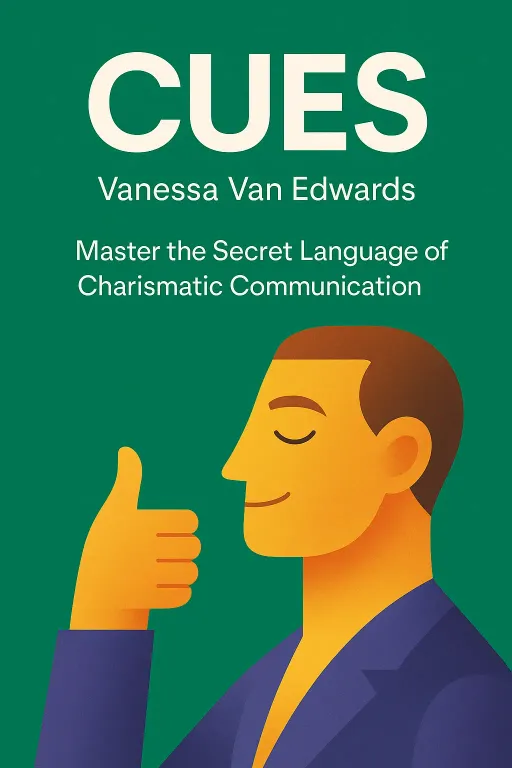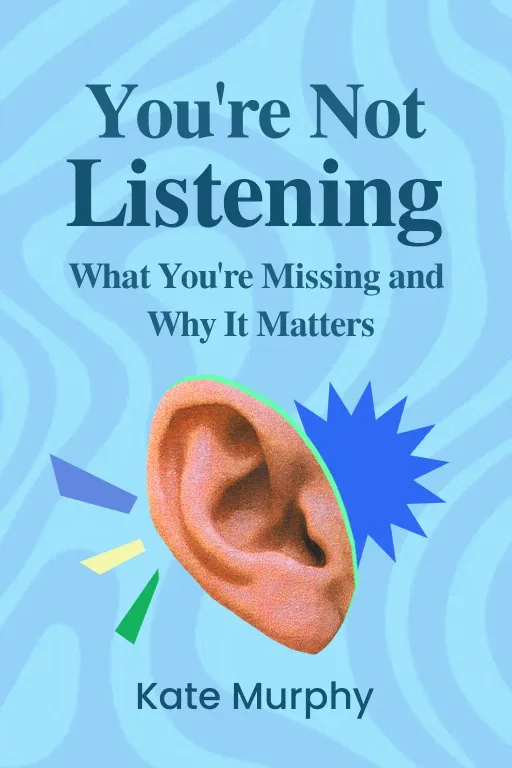
The Listening Superpower
8 minWhat You're Missing and Why It Matters
Golden Hook & Introduction
SECTION
Michelle: Microsoft researchers found the average human attention span has dropped to eight seconds. A goldfish has an attention span of nine. Mark: Oh, man. So we lost to a goldfish. That’s where we are as a species. Michelle: We are now officially less focused than a goldfish. And today, we’re exploring the book that argues this isn't just about our phones; it's a trend that is fundamentally destroying our relationships. Mark: I’m almost afraid to ask, but I feel like we need to. What book is this? Michelle: This is the core of Kate Murphy's international bestseller, You're Not Listening: What You're Missing and Why It Matters. Mark: Right, and Murphy isn't just a random commentator. She's a long-time journalist for places like The New York Times, and she was inspired to write this after noticing a strange pattern in her interviews—the more she truly listened, the more people, even famous and successful ones, would reveal their deepest secrets. It was like they were starved for attention. Michelle: Exactly. It's that universal hunger to be heard that we're diving into today. And this 'starvation' for attention she noticed isn't just a feeling; she argues it's a full-blown crisis.
The Great Disconnect: Why We've Stopped Listening
SECTION
Michelle: The book opens with some pretty stark data. A major survey found that almost half of all Americans reported not having a single meaningful in-person social interaction on a daily basis. They often felt lonely even when surrounded by people. Mark: That sounds bleak. Is it really that bad? I mean, we're talking and texting and posting all the time. Isn't that a form of connection? Michelle: That's the paradox. Murphy uses this incredible story about the Algonquin Round Table from the 1920s to illustrate this. You have this group of the wittiest, most celebrated writers in New York, people like Dorothy Parker, meeting every day for lunch at the Algonquin Hotel. Mark: I’ve heard of them. They were famous for their razor-sharp wit, right? The intellectual celebrities of their day. Michelle: Precisely. Their wisecracks were published in newspapers across the country. They defined what clever conversation was. But here's the punchline: many of them were profoundly lonely, depressed, and some even died by suicide. Years later, Dorothy Parker looked back on it and said, "It was the terrible day of the wisecrack... There was no truth in anything they said." Mark: Wow. So it was performative connection, not real connection. All talk, no listen. It's like a 1920s version of an Instagram feed, where everything looks perfect but the reality is hollow. Michelle: Exactly. And Murphy argues that's where we are now—a culture of performance. Our education system has debate teams and public speaking classes, but when was the last time you saw a class on how to listen carefully? We're taught to speak, to project, to build a brand, but we're rarely taught to listen.
The Invisible Earplugs: Assumptions and the Racing Mind
SECTION
Michelle: And the craziest part is, this problem gets even worse with the people we care about most. Mark: Hold on, how does that work? I'd assume I'm a better listener with my partner or my best friend than with a stranger I meet on the street. Michelle: That's what everyone thinks, but the research is shocking. Murphy details this concept called the 'closeness-communication bias.' She describes an experiment where researchers had married couples and total strangers try to interpret ambiguous phrases. Mark: What kind of phrases? Michelle: Things like, "You look different today." That could mean you look great, or it could mean you look tired, or it could be an insult. The speaker knew what they meant, and their spouse and a stranger had to guess. Mark: Okay, so the spouses must have crushed the strangers, right? Michelle: The spouses performed no better, and in some cases, they were actually worse than the strangers at guessing the correct meaning. Mark: That's terrifying! Why? Is it just complacency? That feeling of, 'I've been married for 10 years, I know what she's going to say, I don't need to pay attention'? Michelle: It's exactly that. We stop listening because we assume we know. We're running on a mental script of that person. And our brains don't help. Murphy talks about the 'speech-thought differential'—we can think at about 400 words per minute, but people only speak at around 125. Mark: Huh. So our brains have all this extra processing power. Michelle: Right. And instead of using that extra bandwidth to listen deeper—to the tone, the body language, the subtext—our brain goes on what she calls 'mental side trips.' Mark: So while my wife is telling me about her day, my brain is already planning dinner, remembering an email I forgot to send, and wondering if goldfish really are happier than us. Michelle: That's it in a nutshell. We're physically present, but mentally, we've checked out. We're wearing these invisible earplugs of assumption and distraction.
Listening as a Superpower: Curiosity, Support, and the Art of Silence
SECTION
Michelle: Exactly! But what's hopeful is that we can reclaim that bandwidth. Murphy reframes listening not as a passive chore, but as an active superpower. And one of the most powerful tools is something we're all terrified of: silence. Mark: Ah, silence. The thing that makes every first date and job interview excruciatingly awkward. I can feel the anxiety just thinking about it. Michelle: We all can. But she tells this amazing story about a top salesman named Greg Hopf, who works at this massive, high-pressure furniture store in Texas. He's dealing with an elderly couple who are super indecisive about buying a dining set. A long, awkward silence falls, and everyone is getting uncomfortable. Mark: And he jumps in with a new offer, right? "Buy now and get a free lamp!" Michelle: No. He does nothing. He just stays quiet and waits. And in that silence, the couple starts talking. Not about the furniture, but about their lives. The wife talks about a leg injury she had years ago. The husband talks about his time serving in the Korean War. They just share their stories. And after they finish, the wife looks at the furniture and says, "We'll take it all." They ended up buying way more than the original set. Mark: That's so counterintuitive. The best sales tactic is to shut up. But it sounds like it's not about manipulation, it's about connection. He's not selling a table; he's hearing their story. Michelle: That’s what he said. His quote was, "when you hear people’s stories, you tend to want to do right by them." And that's the fundamental shift the book advocates for. It's moving from a 'shift response'—where you try to shift the conversation back to yourself—to a 'support response.' Mark: What’s the difference? Michelle: A shift response is when your friend says, "My boss is driving me crazy," and you say, "Oh, you think your boss is bad? Let me tell you about my terrible boss." You've just made it about you. A support response is asking a curious, open-ended question, like, "What happened today that was so frustrating?" It keeps the focus on them. The book highlights the Quaker practice of 'clearness committees,' where the only rule is you can't give advice. You can only ask honest questions to help the person find their own answer. Mark: That's a great concept. But I have to ask, while the book is widely praised and has been nominated for awards, some critics have pointed out a blind spot. It talks a lot about listening, but not much about who gets listened to. It doesn't really dig into how power dynamics—like race, or gender, or social status—can make some people's voices 'easier' to ignore. Does Murphy talk about that? Michelle: That's a very fair and important critique. The book focuses more on the universal, psychological, and neurological aspects of listening and less on the socio-political structures that influence it. It's a valid point that any conversation about listening is incomplete without acknowledging those power dynamics. It's a limitation worth noting as you read it.
Synthesis & Takeaways
SECTION
Michelle: So, when you pull it all together, Murphy's argument is that listening isn't just about being polite. It's a form of intelligence, a moral act, and maybe our best tool against the loneliness that defines so much of modern life. Mark: It's about seeing listening not as a weakness or a passive state, but as the most powerful position in any conversation. You're the one gathering information, building trust, and creating real connection. The talker is just... broadcasting. Michelle: And it's a skill. We can get better. Murphy's final message is one of hope. It's about being patient with ourselves and others. She quotes Henry David Thoreau, who said: "The greatest compliment that was ever paid me was when one asked me what I thought, and attended to my answer." Mark: I love that. So the challenge for our listeners this week is simple, but not easy. In your next important conversation, try to use one 'support response' instead of a 'shift response.' Just ask one more question instead of telling your own story. See what happens. Michelle: Let us know how it goes. We'd love to hear your stories. Michelle: This is Aibrary, signing off.
